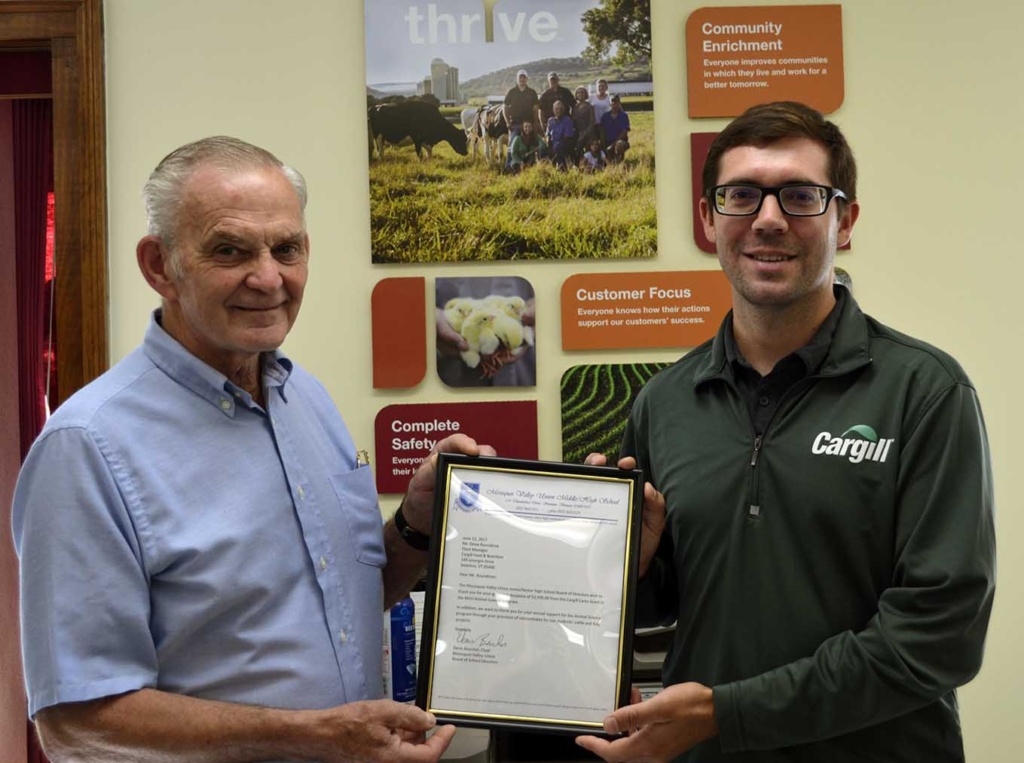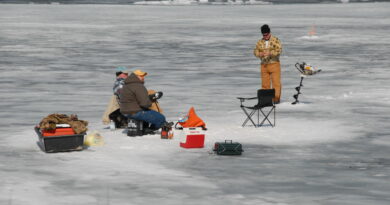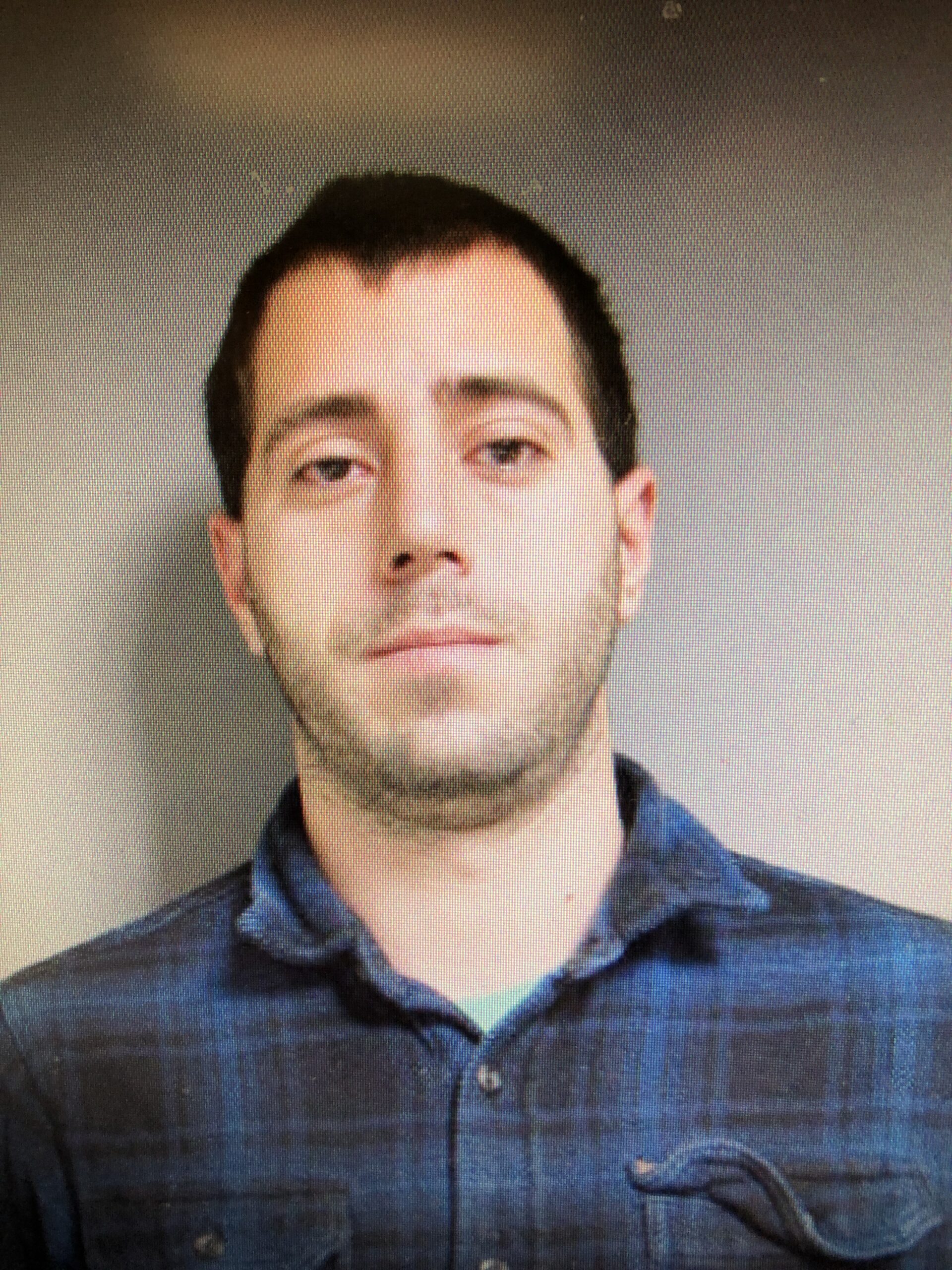Community Cares Grant Boosts Animal Science Program at MVU
By Ruthie Laroche, for the County Courier
Jim Messier, who teaches the Animal Science program at Missisquoi Valley Union High School, recently visited the Cargill plant in Swanton with a thank you plaque in hand. Cargill made a generous donation to the program in the amount of approximately $3,000.
This grant, called the Community Cares Grant, will help supplement the Animal Science Program at MVU for the 2017-2018 school year. Cargill has been a proud supporter of the Missisquoi Valley program for years, and they look forward to supporting the Technical Center classes in the future.
“We’re happy to help the Animal Science Program. Giving back to our community and giving our students a chance to get some hands on learning and knowledge will hopefully better prepare them for the future. Franklin County is especially agriculturally oriented, so it makes a lot of sense for us to be partners with MVU,” said Drew Roundtree, of Cargill.
Cargill has a 70-20-10 principle which breaks the learning process down into three stages and vocational programs such as the ones offered at MVU are excellent places for students to put all three of the steps into motion.
“Ten Percent of your learning is going to come from reading books and reading manuals, twenty percent will come from watching other people do the job, and seventy percent will come from actual on the job experience. If we can help contribute to that seventy percent it makes us feel pretty good about our community,” Roundtree said.
[bar group=’86’]
Jim Messier and the technical programs he helped found when the high school opened in 1970 have seen many students excel in the classroom.
The Future Farmers of America program at MVU has won more state championships in their fields than all of the athletic programs at the school combined.
“The FFA is one of the things that students remember even more than their classroom instruction because it does build leadership and character and helps them make business decisions, get along with other people, and develop a code of conduct,” said Messier.
Messier feels that the vast majority of his students take the steps they need to take to learn, to care for their animals, and to be responsible for their actions in the classroom and in the barns with the animals.
The Animal Science Program at MVU has embraced a Diversified Agricultural Program, which means that the students are working with numerous animals while they participate in the classes.
[bar group=’86’]
During the 2016 to 2017 school year the barn at MVU had two Jersey heifers, three steer, three hogs, three sheep, a nanny goat, and a donkey.
Mr. Messier gives the incoming students the opportunity to choose to work with the animal they are most interested in, and he does his best to ensure that they will have the opportunity to care for that animal.
The students who worked with the three hogs that the program raised were responsible for all of the care for the animals. They did the weight tapes, took the temperatures, and did the feeding and cleaning. This hands on responsibility tends to bring out the very best in the students.
The students in the technical programs evaluate themselves each day. They must evaluate their work in the areas of safety, responsibility for learning, persistence, and responsible citizenship. After the student has done a self-evaluation, the instructor has the opportunity to weigh in on the student’s assessment.
Mr. Messier feels this self evaluation brings a lot of accountability to the students in the program.
When Mr. Messier began his career, teaching in Franklin County, nearly ninety percent of the county was participating in some kind of agricultural field. Many of his students were male, however, today some of his classes are predominantly female.
[bar group=’86’]
Mr. Messier has been foundational in building and maintaining the agricultural portion of the technical program, remaining the head of the program from 1970 until 2015. He has seen the Animal Science Program grow from calves being raised in hutches on the property to the completion of a barn that houses the animals.
Last year the program installed a web cam so that students could enjoy watching the animals in the barn.
December was a busy month at the MVU barn as the students prepared for their donkey, Ester, to give birth to her baby. Ester did deliver her newborn and folks from all over the state, the nation, and even the world, had an opportunity to see what the students were having the opportunity to participate in.
Missisquoi’s technical programs, including the Animal Science Program, have graduated many students who have gone on to successful careers. Some of those students have stayed in Franklin County and added value to the area through the skills they acquired in Mr. Messier’s classroom.
Mike Fournier, who worked as the plant manager at Cargill was a student of the program.
Local farmers Guy Choiniere and his son Matt both graduated from the agricultural program at MVU and farm in Highgate. Dennis Boucher, who also farms in Highgate, graduated from the program.
Mr. Messier recalls the names of many families that went through his program. Names like the Depaties, the Laroches, the Choinieres, and the Gagnes came immediately to his mind. Some of these families, like the Choinieres, have seen two generations graduate.
[bar group=’86’]
Even if a student doesn’t enter an agricultural field, the students who attend the program leave with life skills that will help them embrace the challenges they will face in the years ahead.
The Franklin County Field Days will have some special guests this year, and Mr. Messier hopes that those guests will help Franklin County folks see the hard work the students have been doing, first hand.
Some of the animals that the students raised and cared for during the last school year will be present at the Field Days. Ester, the donkey who gave birth on the web cam that the Animal Science Program ran last year, will be present.
Misty the goat and her three kids will be at the Field Days as well as a few of the sheep that were born at the school.
He’s planning to bring two of the steer that were raised at school. The steer will be an excellent example of the effect that genetics have on beef production. There will be one Jersey Steer and one Aberdeen/Holstein cross. Both of the animals are the same age and have been fed the same diet. He’s hoping people will stop in and see the difference between the two animals.
[bar group=’86’]
Mr. Messier is hoping to see the animals housed in the petting area at the Field Days. He will also have an educational exhibit on site where kids can grade and candle eggs and get a look at the various items the students use to help care for the animals.
The FFA will be operating an ice cream both at the Field Days, and Messier’s wife, Ronna will be in the booth. She and other volunteers from the area will be scooping ice cream and making milk shakes.
Missisquoi’s Animal Science Program has been a force for positive choices, self responsibility, and accountability, and for a major contributor in raising up the agricultural community in Franklin County.
“We’re just supporting the next generation of agricultural leaders,” said Roundtree, as he spoke of the grant his company recently made to the Animal Science Program, and his assessment certainly seems accurate.
[bar group=’86’]







